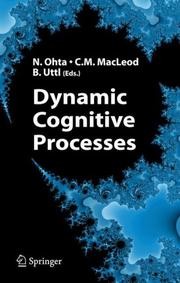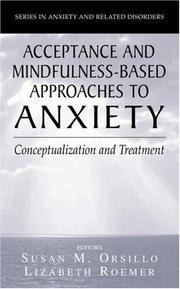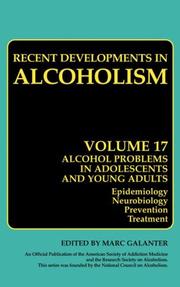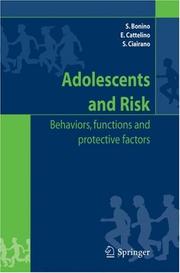| Listing 1 - 9 of 9 |
Sort by
|
Book
ISBN: 332281369X Year: 2005 Publisher: Wiesbaden : Deutscher Universitätsverlag : Imprint: Deutscher Universitätsverlag,
Abstract | Keywords | Export | Availability | Bookmark
 Loading...
Loading...Choose an application
- Reference Manager
- EndNote
- RefWorks (Direct export to RefWorks)
In dynamischen Unternehmensumwelten zählt die Lernfähigkeit der Mitarbeiter zu den wichtigsten Existenzsicherungsfaktoren. Es stellt sich die Frage, wie sich Lernfähigkeit diagnostizieren und entwickeln lässt. Mit ihrem Fragebogen zum Lernen lernen legt Martina Stangel-Meseke ein Forschungsinstrument vor, das die vielen Facetten der Lernfähigkeit theoretisch und empirisch fundiert abbildet. Die Integration des Fragebogens als Vorher-Nachher-Messung erfolgt in einem neuen Ansatz, dem modifizierten Lernpotential-Assessment-Center. Es zeigt sich, dass damit Verbesserungen bei der Lernfähigkeit der Mitarbeiter nicht nur in den verschiedenen Bereichen des Lernens erzielt werden, sondern auch in den arbeitsrelevanten Schlüsselqualifikationen Führungskompetenz und Bereichsübergreifendes Denken. Die Autorin schließt eine wesentliche Forschungslücke zum Thema Lernfähigkeit und zeigt Unternehmen einen zielgerichteten standardisierten Weg zur Selbststeuerung ihrer Mitarbeiter in der Personalentwicklung auf.
Personnel management. --- Psychology. --- Human Resource Management. --- Psychology, general.
Book
ISBN: 1280619899 9786610619894 3540289895 Year: 2005 Publisher: Berlin : Springer,
Abstract | Keywords | Export | Availability | Bookmark
 Loading...
Loading...Choose an application
- Reference Manager
- EndNote
- RefWorks (Direct export to RefWorks)
Der sensationelle Erfolg der 1. Auflage hat bewiesen, dass es DAS unterhaltsame Psychologielehrbuch gibt! In der Neuauflage gelingt es dem Autor erneut, in überzeugender Weise Emotionen zu definieren, ergründen und entwickeln zu lassen. Peppig geschrieben und reich bebildert, entbehrt das Buch dennoch nicht wissenschaftlicher Grundlagen. Rost schreibt über alles, was Menschen je bewegt hat und bewegen wird: Bindungsgefühl, Sexualität, Aggressivität, Scham, Schuld, Angst, Trauer, Sinnenfreude, Entspannung, Neugierde und vieles mehr. Und das in einem Stil, der witzig, ironisch, manchmal deftig und provokativ, aber nie langweilig ist. Das Blättern in diesem Buch macht einfach Spaß!
Cognitive psychology. --- Psychology. --- Psychotherapy . --- Cognitive Psychology. --- Psychology, general. --- Psychotherapy. --- Emotions.
Book
ISBN: 1280621052 9786610621057 3540264884 Year: 2005 Publisher: Berlin, Heidelberg : Springer Berlin Heidelberg : Imprint: Springer,
Abstract | Keywords | Export | Availability | Bookmark
 Loading...
Loading...Choose an application
- Reference Manager
- EndNote
- RefWorks (Direct export to RefWorks)
Was ist 'Anthropologie'? - Wörtlich übersetzt: 'die Lehre vom Menschen' - Eine primär biologische Disziplin mit vielfältigen kulturwissenschaftlichen Bezügen- Ein Brückenfach, das zwischen Natur- und Geisteswissenschaften vermitteln will - Anthropologie schließt auch die nächsten Verwandten der Menschen im Tierreich, die nicht-menschlichen Primaten, mit ein- Ihr Anliegen ist, die 'Biologie des Menschen' nicht nur auf eine 'Zoologie des Menschen' zu reduzieren, sondern seine kulturelle Überformung einzubeziehen. Anthropologie: - Eine Einführung in die wichtigsten Inhalte, besonders geeignet für
Zoology. --- Psychology. --- Evolutionary biology. --- Behavioral sciences. --- Anthropology. --- Psychology, general. --- Evolutionary Biology. --- Behavioral Sciences. --- Evolution (Biology)
Book
ISBN: 1281067849 9786611067847 3798515824 Year: 2005 Publisher: Darmstadt : Steinkopff Verlag Darmstadt,
Abstract | Keywords | Export | Availability | Bookmark
 Loading...
Loading...Choose an application
- Reference Manager
- EndNote
- RefWorks (Direct export to RefWorks)
Dieses nun überarbeitet und erweitert in 2. Auflage vorliegende Buch verschafft eine Übersicht über den wissenschaftlichen Kenntnisstand und die Qualitätsstandards in allen wichtigen Gebieten psychologischer Begutachtung im Strafverfahren: - Persönlichkeitsdiagnostik - neurologische Leistungsdiagnostik - Simulationsdiagnostik - psychologische Kriminalprognose - Glaubhaftigkeitsbeurteilung. In diese Auflage neu aufgenommen wurde ein Kapitel zur Qualitätssicherung. Ein weiteres neues Kapitel widmet sich Problemen bei der Begutachtung ausländischer Rechtsbrecher. Die eingehende Darstellung der Themen ist eine notwendige Ausweitung und Aktualisierung von gutachterlichem Lehrbuchwissen, was das Buch unentbehrlich macht für gutachterlich tätige Psychologen, Psychiater, Rechtsmediziner und nicht minder für Richter, Staatsanwälte und Strafverteidiger.
Medical laws and legislation. --- Psychology. --- Forensic medicine. --- Psychiatry. --- Medical Law. --- Psychology, general. --- Forensic Medicine. --- Medical jurisprudence. --- Criminal psychology.

ISBN: 1280613211 9786610613212 4431274316 4431239995 4431998063 Year: 2005 Publisher: New York : Springer,
Abstract | Keywords | Export | Availability | Bookmark
 Loading...
Loading...Choose an application
- Reference Manager
- EndNote
- RefWorks (Direct export to RefWorks)
The conference from which this book derives took place in Tsukuba, Japan in March 2004. The fifth in a continuing series of conferences, this one was organized to examine dynamic processes in "lower order" cognition from perception to attention to memory, considering both the behavioral and the neural levels. We were fortunate to attract a terrific group of con tributors representing five countries, which resulted in an exciting confer ence and, as the reader will quickly discover, an excellent set of chapters. In Chapter 1, we will provide a sketchy "road map" to these chapters, elu cidating some of the themes that emerged at the conference. The conference itself was wonderful. We very much enjoyed the vari ety of viewpoints and issues that we all had the opportunity to grapple with. There were lively and spirited exchanges, and many chances to talk to each other about exciting new research, precisely what a good confer ence should promote. We hope that the readers of this book will have the same experience—moving from careful experimental designs in the cogni tive laboratory to neural mechanisms measured by new technologies, from the laboratory to the emergency room, from perceptual learning to changes in memory over decades, all the while squarely focusing on how best to explain cognition, not simply to measure it. Ultimately, the goal of science is, of course, explanation. We also hope that the reader will come away absolutely convinced that cognition is a thoroughly dynamic, interactive system.
Cognition. --- Cognitive psychology. --- Psychology, Cognitive --- Cognitive science --- Psychology --- Philosophy (General). --- Psychology, general. --- Psychology. --- Behavioral sciences --- Mental philosophy --- Mind --- Science, Mental --- Human biology --- Philosophy --- Soul --- Mental health
Book
ISBN: 3322935345 Year: 2005 Publisher: Wiesbaden : VS Verlag für Sozialwissenschaften : Imprint: VS Verlag für Sozialwissenschaften,
Abstract | Keywords | Export | Availability | Bookmark
 Loading...
Loading...Choose an application
- Reference Manager
- EndNote
- RefWorks (Direct export to RefWorks)
Coaching mit System professionalisiert Führungs- und Beratungskräfte, Teams und Organisationen. Wer Veränderungsprozesse gestaltet, braucht qualitätsvolle Begleitung. Für InhaberInnen anspruchsvoller Berufsrollen wird es immer selbstverständlicher, auf die Unterstützung von Personen mit kompetenter Außensicht zurückzugreifen. Coaching und Supervision gehören mittlerweile zur positiven Routine vorausschauenden Organisationshandelns und nachhaltiger Qualitätssicherung. Eine Coachingkultur bildet sich heraus. Dies ist ein Lehr-, Lern- und Werkbuch nachhaltiger Beratung. Als Lehrbuch bietet es Zusammenhangswissen für ein Beratungskonzept mit Anspruch. Als Lernbuch fördert es soziale Kompetenz. Als Werkbuch bietet es anwendungsbezogene Anregungen für die eigene Praxis. Die Autoren verbinden humanwissenschaftliche Fundierung mit lebendiger, bildlicher und praxisnaher Darstellung. Ein Buch sowohl für Fachleute als auch für allgemein am Thema Coaching Interessierte.

ISBN: 1280851910 9786610851911 0387259899 0387259880 1441938559 Year: 2005 Publisher: New York ; London : Springer,
Abstract | Keywords | Export | Availability | Bookmark
 Loading...
Loading...Choose an application
- Reference Manager
- EndNote
- RefWorks (Direct export to RefWorks)
Acceptance- and Mindfulness-Based Approaches to Anxiety: Conceptualization and Treatment Edited by Susan M. Orsillo, Suffolk University, Boston Lizabeth Roemer, University of Massachusetts, Boston For many years, cognitive-behavioral techniques have been at the forefront of treatment for anxiety disorders. More recently, strategies rooted in Eastern concepts of acceptance and mindfulness have demonstrated some promise in treating anxiety, especially in tandem with CBT. Now, with Acceptance and Mindfulness-Based Approaches to Anxiety, thirty expert clinicians and researchers present a comprehensive guide to integrating these powerful complementary approaches—where they match, when they differ, and why they work so well together. Chapter authors clearly place mindfulness and acceptance into the clinical lexicon, establishing links with established traditions, including emotion theory and experiential therapy. In addition, separate chapters discuss specific anxiety disorders, the current state of treatment for each, and practical ways of integrating acceptance and mindfulness approaches into therapy. Among the book’s highlights: - A detailed conceptual framework for combining acceptance-based and cognitive-behavioral approaches - Clinically valid definitions of acceptance and mindfulness, explaining their compatibility with more goal-driven and problem-solving therapies - Discussion on how acceptance and mindfulness can be accurately assessed - Demonstrations of three specific methods—Acceptance and Commitment Therapy, Mindfulness-Based Stress Reduction, and Dialectical Behavioral Therapy skills training—as used in treating clients with anxiety disorders. - Treatment models for generalized anxiety disorders, obsessive-compulsive disorder, PTSD, social anxiety, and panic disorder - A specific chapter on applications of acceptance-based therapies for childhood anxiety disorders - Future directions for bettering our understanding of how these therapies work As the growing number of cases shows, anxiety remains a major clinical disorder, and practitioners need ready access to ideas and interventions. With this book, editors Orsillo and Roemer have created a forum inspiring future innovations and current best practice.
Anxiety disorders --- Anxiety --- Acceptance and commitment therapy. --- Cognitive therapy. --- Treatment. --- Treatment. (delete) --- Cognitive-behavior therapy --- Cognitive-behavioral therapy --- Cognitive psychotherapy --- Psychotherapy --- ACT (Psychotherapy) --- Behavior therapy --- Cognitive therapy --- Commitment (Psychology) --- Self-acceptance --- Angst --- Anxieties --- Anxiousness --- Emotions --- Stress (Psychology) --- Agitation (Psychology) --- Fear --- Worry --- Anxiety neuroses --- Anxiety states, Neurotic --- Neurotic anxiety states --- Neuroses --- Applied psychology. --- Philosophy (General). --- Psychology, clinical. --- Psychotherapy and Counseling. --- Psychology, general. --- Clinical Psychology. --- Clinical psychology. --- Psychiatry --- Psychology, Applied --- Psychological tests --- Applied psychology --- Psychagogy --- Psychology, Practical --- Social psychotechnics --- Psychology --- Psychotherapy. --- Counseling. --- Psychology. --- Behavioral sciences --- Mental philosophy --- Mind --- Science, Mental --- Human biology --- Philosophy --- Soul --- Mental health --- Counselling --- Helping behavior --- Clinical sociology --- Interviewing --- Personal coaching --- Social case work --- Therapy (Psychotherapy) --- Mental illness --- Mental health counseling --- Treatment

ISBN: 1280263032 9786610263035 0306486261 0306486253 0387292152 Year: 2005 Volume: vol. 17 Publisher: New York : Kluwer Academic/Plenum,
Abstract | Keywords | Export | Availability | Bookmark
 Loading...
Loading...Choose an application
- Reference Manager
- EndNote
- RefWorks (Direct export to RefWorks)
Alcohol continues to be the substance of choice for today’s youth, leading to serious physical, psychological, and social consequences. Alcohol Problems in Adolescents and Young Adults ably addresses this growing trend. The latest entry in the Recent Developments in Alcoholism series, it comprehensively presents a wide-ranging clinical picture of teen drinking - epidemiology, neurobiology, behavioral phenomena, diagnostic and assessment issues, prevention and treatment data - in a developmental context. Fifty expert contributors display the scientific rigor, practical wisdom, and nuanced analysis that readers have come to expect from previous volumes. Among the subjects studied in depth: - Initiation of alcohol use/abuse - Risk and protective factors for alcohol dependence - High-risk adolescent populations - Drinking habits of college students - Long-range consequences of teenage drinking - Family-, school-, and community-based prevention programs - Treatment of comorbid substance and psychiatric disorders Clinicians, researchers, and policy makers will find this a bedrock source of evidence-based knowledge, whether one’s goal is choosing an age-appropriate assessment tool for eighth graders, preventing drinking among high school students, or understanding the alcohol-friendliness of campus culture. Here is a critical resource for all professionals dedicated to helping youngsters grow up sober.
Alcoholism. --- Youth --- Alcohol use. --- Alcohol and youth --- Addiction to alcohol --- Alcohol abuse --- Alcohol intoxication --- Dipsomania --- Drinking problem --- Drunkenness --- Inebriety --- Intemperance --- Intoxication --- Jellinek's disease --- Liquor problem --- Substance abuse --- Temperance --- Controlled drinking --- Drinking of alcoholic beverages --- Philosophy (General). --- Psychology, clinical. --- Psychology, general. --- Health Psychology. --- Clinical Psychology. --- Public Health. --- Psychology. --- Health psychology. --- Clinical psychology. --- Public health. --- Community health --- Health services --- Hygiene, Public --- Hygiene, Social --- Public health services --- Public hygiene --- Social hygiene --- Health --- Human services --- Biosecurity --- Health literacy --- Medicine, Preventive --- National health services --- Sanitation --- Psychiatry --- Psychology, Applied --- Psychological tests --- Health psychology --- Health psychology, Clinical --- Psychology, Clinical health --- Psychology, Health --- Salutogenesis --- Clinical psychology --- Medicine and psychology --- Behavioral sciences --- Mental philosophy --- Mind --- Science, Mental --- Human biology --- Philosophy --- Soul --- Mental health

ISBN: 1280413514 9786610413515 8847003938 8847002907 8847015510 Year: 2005 Publisher: Milano ; New York : Springer,
Abstract | Keywords | Export | Availability | Bookmark
 Loading...
Loading...Choose an application
- Reference Manager
- EndNote
- RefWorks (Direct export to RefWorks)
The volume gives a substantial contribution to the understanding of adolescent risk behaviors, informative and useful for both scientist and practitioner. The chapters deal with each of the key risk behaviors that are of concern at this developmental stage: tobacco smoking, alcohol use, marijuana and other drugs use, precocious and unprotected sexual behavior, eating disorders, risky behaviors, risky driving, deviant and antisocial behavior. The book combines theoretical analysis and the result of a wide research project, where the multiple contexts in the ecology of daily adolescent life have been considered; the data are based on large normative samples and the presentation of findings is very accessible, relying throughout on graphic representation rather than statistical tables. The book describes the different risk behaviors, shows the linkages among them, explains the functions served by the various risk behaviors or the meanings they may have for the adolescent, examines how they vary with age, sex, and other demographic characteristics, demonstrates the influential role that the theoretical risk factors and protective factors play in adolescent risk behavior involvement. The research findings not only strengthen the theory, but they serve as an important guide to the design of intervention efforts to prevent or reduce adolescent involvement in risk behavior. The emphasis of the authors on the need to strengthen protective factors that can promote positive development, and on the need to provide opportunities for behaviors that can serve the same purposes as risk behaviors do, but without compromising health and development, is salutary. This is the key challenge for all western contemporary societies to accomplish.
Risk-taking (Psychology) in adolescence. --- Adolescent psychopathology. --- Psychopathology, Adolescent --- Child psychopathology --- Psychology, Pathological --- Adolescent psychiatry --- Adolescent psychology --- Philosophy (General). --- Social sciences. --- Developmental psychology. --- Psychology, clinical. --- Consciousness. --- Psychology, general. --- Social Sciences, general. --- Developmental Psychology. --- Health Psychology. --- Personality and Social Psychology. --- Clinical psychology. --- Apperception --- Mind and body --- Perception --- Philosophy --- Psychology --- Spirit --- Self --- Development (Psychology) --- Developmental psychobiology --- Life cycle, Human --- Behavioral sciences --- Human sciences --- Sciences, Social --- Social science --- Social studies --- Civilization --- Psychiatry --- Psychology, Applied --- Psychological tests --- Psychology. --- Health psychology. --- Personality. --- Social psychology. --- Mass psychology --- Psychology, Social --- Human ecology --- Social groups --- Sociology --- Personal identity --- Personality psychology --- Personality theory --- Personality traits --- Personology --- Traits, Personality --- Individuality --- Persons --- Temperament --- Health psychology --- Health psychology, Clinical --- Psychology, Clinical health --- Psychology, Health --- Salutogenesis --- Clinical psychology --- Medicine and psychology --- Mental philosophy --- Mind --- Science, Mental --- Human biology --- Soul --- Mental health
| Listing 1 - 9 of 9 |
Sort by
|

 Search
Search Feedback
Feedback About UniCat
About UniCat  Help
Help News
News